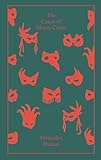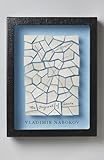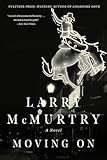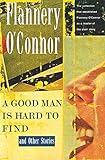On Thursday, The New York Times published an op-ed defense of prolific writers by one of the modern era’s most prolific writers himself, Stephen King. It was a timely bit of writing for me, a non-prolific writer with a first book deal in the works, for whom the question of appropriate literary output is often debated.

 In King’s take, which is certainly worth a read, he basically argues two things. One, that there are great works buried in the overwhelming bibliographies of some writers. (i.e. “Alexandre Dumas wrote The Count of Monte Cristo and The Three Musketeers—and some 250 other novels.”) And two, that for some authors, like him and Joyce Carol Oates, “prolificacy is sometimes inevitable.” He describes the crazy-making clamor of the voices in his head since his youth, all the stories crying out to be written.
In King’s take, which is certainly worth a read, he basically argues two things. One, that there are great works buried in the overwhelming bibliographies of some writers. (i.e. “Alexandre Dumas wrote The Count of Monte Cristo and The Three Musketeers—and some 250 other novels.”) And two, that for some authors, like him and Joyce Carol Oates, “prolificacy is sometimes inevitable.” He describes the crazy-making clamor of the voices in his head since his youth, all the stories crying out to be written.
 The potential for those unwritten works is an interesting point of entry. Like most everyone, I’ve always found a particular romance in the notion of lost works of literature. There are so many different kinds, aside from those that never manage to be written. There are the truly lost, like William Shakespeare’s missing play The History of Cardenio. The nearly lost, like the poems of Emily Dickinson. There are the mostly-lost works that could have died with their authors but were published anyway, like Vladimir Nabakov’s The Original of Laura or David Foster Wallace’s The Pale King.
The potential for those unwritten works is an interesting point of entry. Like most everyone, I’ve always found a particular romance in the notion of lost works of literature. There are so many different kinds, aside from those that never manage to be written. There are the truly lost, like William Shakespeare’s missing play The History of Cardenio. The nearly lost, like the poems of Emily Dickinson. There are the mostly-lost works that could have died with their authors but were published anyway, like Vladimir Nabakov’s The Original of Laura or David Foster Wallace’s The Pale King.
But lately I’ve been struck by the notion that there might be no books more lost than those buried in the overwhelming bibliographies of authors who have simply published too damn much.
 What’s your opinion, for instance, of the William Faulkner novel Pylon? How about Joyce Carol Oates’s Solstice? Larry McMurtry’s incredible doorstop of a novel Moving On? Or the only book in which Philip Roth wrote of a female protagonist, When She Was Good? Any non-John Updike scholars out there recall A Month of Sundays?
What’s your opinion, for instance, of the William Faulkner novel Pylon? How about Joyce Carol Oates’s Solstice? Larry McMurtry’s incredible doorstop of a novel Moving On? Or the only book in which Philip Roth wrote of a female protagonist, When She Was Good? Any non-John Updike scholars out there recall A Month of Sundays?
No? Well, who can blame you? Faulkner wrote 19 novels. You could hardly be expected to read them all. Larry McMurtry has written over 45 books. Roth, nearly 30 novels and novellas. Updike, more than 20 novels and almost as many short story collections.
Joyce Carol Oates, as King points out is “the author of more than 50 novels (not counting the 11 written under the pseudonyms Rosamond Smith and Lauren Kelly).” But that’s just the novels. I stopped counting the short story collections listed on her Wikipedia bibliography entry after 20—which just brought me to the early 1990s. Oh, and that entry is listed as “incomplete.” Wikipedia would be grateful for your help in expanding it, though it’s unlikely you could do so faster than Oates herself.
Seeing a bibliography like that I can only wonder, isn’t it possible—even likely, perhaps—that Oates’s best novel is some forgotten, out-of-print book she wrote in, say, 1982, maybe one that hasn’t even landed on that incomplete bibliography yet? If so, most of us will never know it, because her massive output has built a body so forbidding that it deprives us of the experience of her books.
This kind of output isn’t limited to the literary scene, as King’s piece clearly illustrates. In fact, things only get really wild when you start talking about genre. There’s King himself, of course, who is at around 70 books all told. Agatha Christie who, as he points out, published 91 novels. Isaac Asimov, who, King says “hammered out more than 500 books and revolutionized science fiction.” James Patterson—also name-checked by King—has produced (mostly co-authored) nearly 150 books. He released about 15 in 2014 alone. And where would Modern Culture be without Nora Roberts, who has written more than 200 romance novels?
Maybe King is right that this kind of output is a good thing. But something about it still makes me uneasy. Maybe it’s because, upon discovering a book I love, I invariably feel compelled to track down and devour everything else by the same author.
 With some it’s simple. Flannery O’Connor’s entire bibliography basically consists of four books, A Good Man is Hard to Find, Wise Blood, The Violent Bear it Away, and Everything That Rises Must Converge. Then, if you’re really hungry, there are her letters, interviews, whatever remains of her collected “uncollected” marginalia, and, most recently, a prayer journal. Finish those, and you’ve done it. You know Flannery all the way from “The Geranium” to “Judgment Day,” and whatever else she thought, wondered, or murmured to the heavens. There’s something wonderful about having seen all that an author has to offer, following the progression of her skill, obsessions, the recurring tropes and themes, the trails of subconscious leakage.
With some it’s simple. Flannery O’Connor’s entire bibliography basically consists of four books, A Good Man is Hard to Find, Wise Blood, The Violent Bear it Away, and Everything That Rises Must Converge. Then, if you’re really hungry, there are her letters, interviews, whatever remains of her collected “uncollected” marginalia, and, most recently, a prayer journal. Finish those, and you’ve done it. You know Flannery all the way from “The Geranium” to “Judgment Day,” and whatever else she thought, wondered, or murmured to the heavens. There’s something wonderful about having seen all that an author has to offer, following the progression of her skill, obsessions, the recurring tropes and themes, the trails of subconscious leakage.
The problem comes when I happen upon an author, like one of the above—King included—whose body of work defies, by its sheer heft, that kind of close study without lavishing a truly abnormal amount of time and devotion upon it.
It’s not as if reading a novel is the same as watching a movie or viewing a piece of art. After all, one could see all of Vincent Van Gogh’s 860 oil paintings in a few days if they were physically available. And a cursory appreciation of Johannes Vermeer’s 34 mightn’t take longer than an hour. Stanley Kubrick’s filmography amounts to 13 feature films I could watch in a few of days if I felt like a binge. But it’s not so simple for writers, unless I want this to become my own personal Year of John Updike, Two Years of Philip Roth, or Decade of Joyce Carol Oates.
King concludes his op-ed by saying that he’s glad Ms. Oates continues to write new books “because,” he says, “I want to read them.” I wonder if he really has. If anyone has read them all. Or truly does anxiously await the next one’s arrival. Whoever has or does is in possession of far more free time than I. If we were immortal, if our time on the planet was infinite, I’m sure I’d feel differently, but as King wisely points out in his own piece, “life is short.”
And let’s say I wasn’t an obsessive completionist. When considering huge bodies of work, there’s still the uncertainty about where to enter and where to go next once you’ve found a way in. If I wish to dig into the oeuvre of Oates, McMurtry, Updike, Roth, or even James Patterson, I’m forced to either choose at random or rely on others to tell me which work is most important and worthy. Which might be fine if the people on whom I were relying had read all of the work themselves, but of course they haven’t—with the exception perhaps of King’s devoted fan base.
I experienced a similar anxiety many years ago at a record store. I had gone there determined to finally delve into Frank Zappa’s music. Unfortunately, it was quite a good record store, and they stocked most of his 100 albums. Finally, after trying to make a decision based on the album art, I gave up and decided to get into punk instead, a lot of short-lived bands that self-destructed after just an album or two, tidy discographies I could learn by heart. Of course there were probably some truly great albums buried in Zappa’s discography, as in the Grateful Dead’s 144-plus record output. But I’ll never know. The volume of work becomes a barricade, a wall that one cannot reasonably scale even if one wishes to.
So it is with novels. It’s true that telling Oates, et al., not to write so much might deprive us of great works, but the net effect is the same either way. Each new book is, for me anyway, another lost in the flood.
Image Credit: Flickr/library_mistress.









